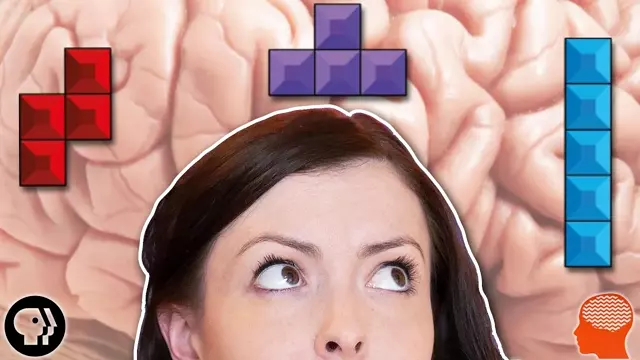2015-04-28
[public] 108K views, 2.10K likes, 72.0 dislikes audio only
Follow me over to Game/Show with Jamin: http://bit.ly/1AbSdim
And SUBSCRIBE to BrainCraft! Click here: http://ow.ly/rt5IE ↓ MORE LINKS BELOW ↓
BrainCraft is written and hosted by Vanessa Hill (https://twitter.com/nessyhill) for PBS Digital Studios. Talking psychology, neuroscience & why we act the way we do.
Sound design: Joel Werner (http://joelwerner.com)
Research: Rachelle Oldmixon (https://twitter.com/rachelleishere)
And papercraft stop-motion by Vanessa.
Keep in touch!
Twitter https://twitter.com/nessyhill
Instagram https://instagram.com/nessyhill
Tumblr http://braincraft.tumblr.com
Facebook https://www.facebook.com/Braincraft
More BrainCraft:
Weird Brain Myths from History! /youtube/video/snWR3GQKQK8
4 Mental Shortcuts That Cloud Your Judgement /youtube/video/v8Z6rdLjloA
More Game/Show:
The Neuroscience of Winning https://youtu.be/JO8udc4v0mg
References:
Tetris boosting cognition
Haier, R. J., Karama, S., Leyba, L., & Jung, R. E. (2009). MRI assessment of cortical thickness and functional activity changes in adolescent girls following three months of practice on a visual-spatial task. BMC research notes, 2(1), 174. http://www.biomedcentral.com/1756-0500/2/174?ref=nf
Haier, R. J., Siegel, B. V., MacLachlan, A., Soderling, E., Lottenberg, S., & Buchsbaum, M. S. (1992). Regional glucose metabolic changes after learning a complex visuospatial/motor task: a positron emission tomographic study. Brain research, 570(1), 134-143. http://www.sciencedirect.com/science/article/pii/000689939290573R
Tetris and PTSD
Holmes, E. A., James, E. L., Coode-Bate, T., & Deeprose, C. (2009). Can playing the computer game “Tetris” reduce the build-up of flashbacks for trauma? A proposal from cognitive science. PloS one, 4(1), e4153. http://journals.plos.org/plosone/article?id=10.1371/journal.pone.0004153
Holmes, E. A., James, E. L., Kilford, E. J., & Deeprose, C. (2010). Key steps in developing a cognitive vaccine against traumatic flashbacks: Visuospatial Tetris versus verbal Pub Quiz. PloS one, 5(11), e13706. http://journals.plos.org/plosone/article?id=10.1371/journal.pone.0013706
Epistemic Action
Kirsh, D., & Maglio, P. (1994). On distinguishing epistemic from pragmatic action. Cognitive science, 18(4), 513-549. http://onlinelibrary.wiley.com/doi/10.1207/s15516709cog1804_1/abstract
What causes addiction?
Gentile, D. A., Choo, H., Liau, A., Sim, T., Li, D., Fung, D., & Khoo, A. (2011). Pathological video game use among youths: a two-year longitudinal study.Pediatrics, 127(2), e319-e329. http://pediatrics.aappublications.org/content/127/2/e319.short
Hilgard, J., Engelhardt, C. R., & Bartholow, B. D. (2013). Individual differences in motives, preferences, and pathology in video games: the gaming attitudes, motives, and experiences scales (GAMES). Frontiers in psychology, 4. http://journal.frontiersin.org/article/10.3389/fpsyg.2013.00608/full
/youtube/video/yG7twFQDRuw?t=103.05

